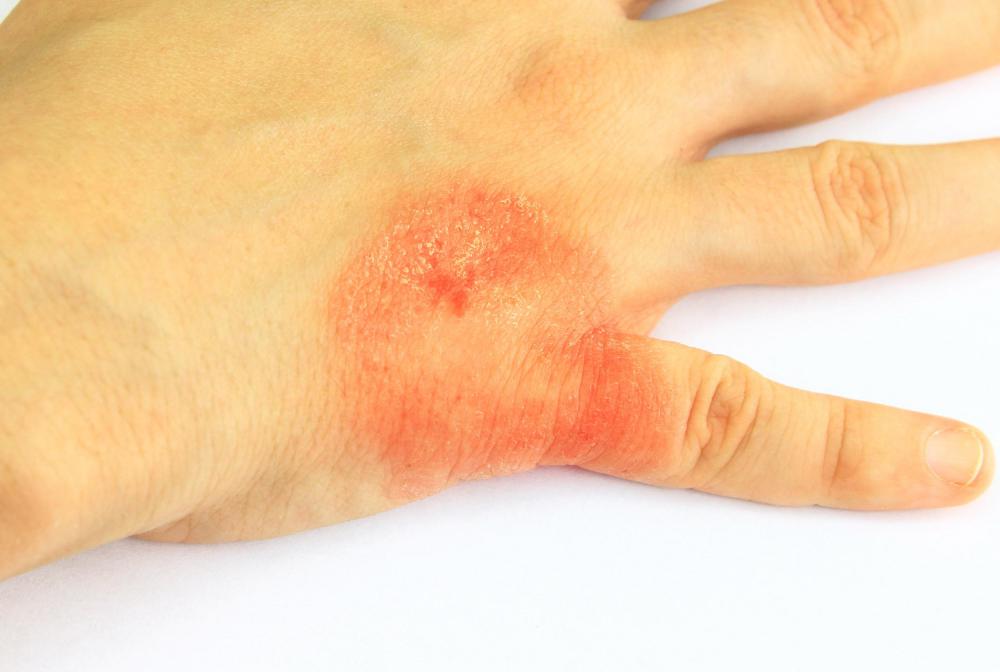At WiseGEEK, we're committed to delivering accurate, trustworthy information. Our expert-authored content is rigorously fact-checked and sourced from credible authorities. Discover how we uphold the highest standards in providing you with reliable knowledge.
What is a Chlorine Allergy?
Chlorine allergy can mean several things. It might mean some form of allergic reaction to chlorine, whether it is ingested, sniffed, or in contact with the skin, as occurs with swimming and possibly showering. Alternately, it could refer to the fact that extended exposure to chlorine may make some people more prone to allergic reactions to the chemical or to other things. These allergic reactions might have symptoms like asthma or allergic rhinitis. In any of these cases, some people do seem to have sensitivity to chlorine and should be closely monitored or have varying forms of treatment if necessary.
True histamine reaction to chlorine could come in many forms. Some people need only the tiniest exposure to develop things like asthma from this chemical, and they might be in trouble if they are constantly exposed by swimming or are drinking water that is treated with chlorine. A number of water companies do sanitize water by adding chlorine, and drinking it could cause symptoms like stomach upset, nausea and vomiting for someone who actually has chlorine allergy. Since this same water would be used for bathing and showering, other symptoms could emerge like rash or allergic dermatitis.

Many people don’t have problems with chlorine ingestion, but show chlorine allergy symptoms because they spend a lot of time swimming. After swimming, asthma or hayfever-like symptoms develop. There is suggestion that this is not always an indication of chlorine allergy, but that exposure to chlorine on a frequent basis may cause some people to be more prone to asthma and hayfever. In either case, if these conditions appear to arise in conjunction with swimming in chlorinated pools, there is recommended treatment.

When a chlorine allergy or trigger is suspected, doctors treat it as they do many other forms of allergies. They can give antihistamines, which help arrest histamine reaction. This might treat both skin and rhinitis symptoms. Given treatment, avoidance of chlorine in the future may not be necessary. Asthma developing from exposure would also need to be addressed, and doctors might do this by recommending both short and long-term inhalers. A combination of antihistamine treatment and asthma inhalers may make it possible for many people to have continued exposure to chlorine.

Sometimes continued exposure is not advised, even with treatment. This may especially apply when reactions occur if a person drinks any substances that are treated with chlorine. In this case, treatment and avoidance would be recommended. People might drink bottled water if ingestion is the greatest problem, and they might use filters to remove chlorine from water used for showers.

It should be noted that a chlorine allergy is fairly rare, and the medical community does not have much to say on this topic. It’s nevertheless important to mention this as a possible allergen to doctors if it is suspected. There is treatment for most kinds of this allergy and a growing awareness that using chlorine in pools is not always the best choice. Alternative salts that promote less reaction might be recommended as safer.
AS FEATURED ON:
AS FEATURED ON:














Discuss this Article
Post your comments